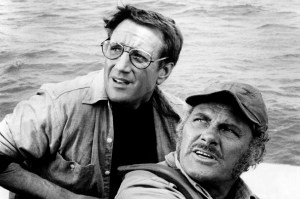In Paris in 1740 the hangman publicly burned his most famous book. In England some of the best and brightest — Alexander Pope, Henry Fielding, Bishop George Berkeley, Jonathan Swift and John Wesley — lined up to destroy his reputation. The book was 1714’s The Fable of the Bees and the author was Sir Bernard Mandeville, popularly known as the Man-Devil.
After Mandeville’s death in 1733, Samuel Johnson, perhaps the wisest Englishman who ever drew breath, admitted that the book had “opened my views into real life very much.” And David Hume, the great British philosopher, said the Man-Devil was, in fact, one of the most important figures in the development of “the science of man.” Immanuel Kant saw his importance in the history of ethics and even Keynes and Karl Marx approved — the latter two because Mandeville had introduced economics to the study of humanity.
In this engrossing and very readable book the philosopher John Callanan celebrates Mandeville’s emergence as the creator of “one of the most influential theories of human nature and society of the eighteenth century.” And the Man-Devil title was not entirely unfair — Mandeville was a provocateur, an intellectual prankster. He wanted to be known, he wanted to sell books and he succeeded by popularizing one simple idea that today seems unremarkable. He said that human beings are animals.
He was a doctor — though at the time this did not mean much. As he wryly noted, little or nothing was known about the workings of the human body and the best any physician could do was talk, and try out any remedies that seemed to have worked on others. But what intrigued him most was animal behavior, in particular the organizational skills of bees.
In 1705 he published a poem entitled “The Fable of the Bees.” It was not the success he had hoped for — he was a fine writer but a poor poet. Then he published the 1714 book with the same title that included the poem and, crucially, a great deal more. The book delivered a fatal blow to the prevailing idea that humans alone had immortal souls. If this wasn’t the case then the religion of the eighteenth century would surely collapse. “The risk,” writes Callanan with pleasingly dry wit, was of “overpopulating heaven not only with lions, tigers and bears but even with sponges, plankton and amoebae.” In short, if all living things had souls, then the next life would be pretty much the same as this one.
But what accounted for the dominance of our species? Mandeville’s answer is not flattering. Humans have, in Callanan’s words, “a deep-seated drive… to rationalize to themselves that they are a special kind of being.” Like all creatures, we are possessed of “animal spirits”: our drive is to self-glorification. Even our most charitable acts are forms of self-flattery. “It is impossible for human beings simply to have the wellbeing of others in their minds.”
Shocking as all this was to the Cartesians and the religious authorities of the time, it represented a huge intellectual leap forward. Human behavior could henceforth be subject to calculation. Our success could be measured. This meant, of course, that the balloon of moral satisfaction felt by many would have to be punctured.
Mandeville was, once again, the man for the job. In 1724, with The Fable of the Bees in the bestseller lists, he published A Modest Defence of Publick Stews. “Stews” were brothels. This was, writes Callanan, “one of the most influential works of its type ever written.” The Man-Devil dismissed all attempts to control prostitution by “cultivating a better species of human being.” Rather, we should accept that “whoring” exists and manage that reality.
There was similar shock value when he added an essay on charity schools to The Fable. These institutions of apparently impeccable moral value should be abolished. They did nothing to suppress “criminal mischief,” as was claimed, because they did not prepare poor children for work. “They instead contribute to the problem rather than solving it,” writes Callanan, “by creating a class of overeducated ne’er do wells.”
At this point it should be acknowledged that the Man-Devil is doing what much of the press does today — publishing material purely for its shock value. “There is no doubt,” writes Callanan, “that Mandeville enjoys lampooning society and exposing hypocrisy. He is what he then became, an unlikely champion of the Enlightenment.” But he also spoke truth to power.
This is a tremendous book and precisely because of that it needs to be read slowly. Mandeville may now have found a neat shelf for himself in the philosophy section but he could equally well appear under economics and, given the tumultuous times in which he lived, he also needs to be in history.
On top of that, his sheer intelligence and pranksterish devilry makes everything even more complicated. Is he being serious? Callanan, somehow, makes sense of all this and there is a note of sadness in his voice as he simply reports the death of his hero in January 1733 in Hackney. A great soul had passed — but of course he did not have a soul.


























Leave a Reply